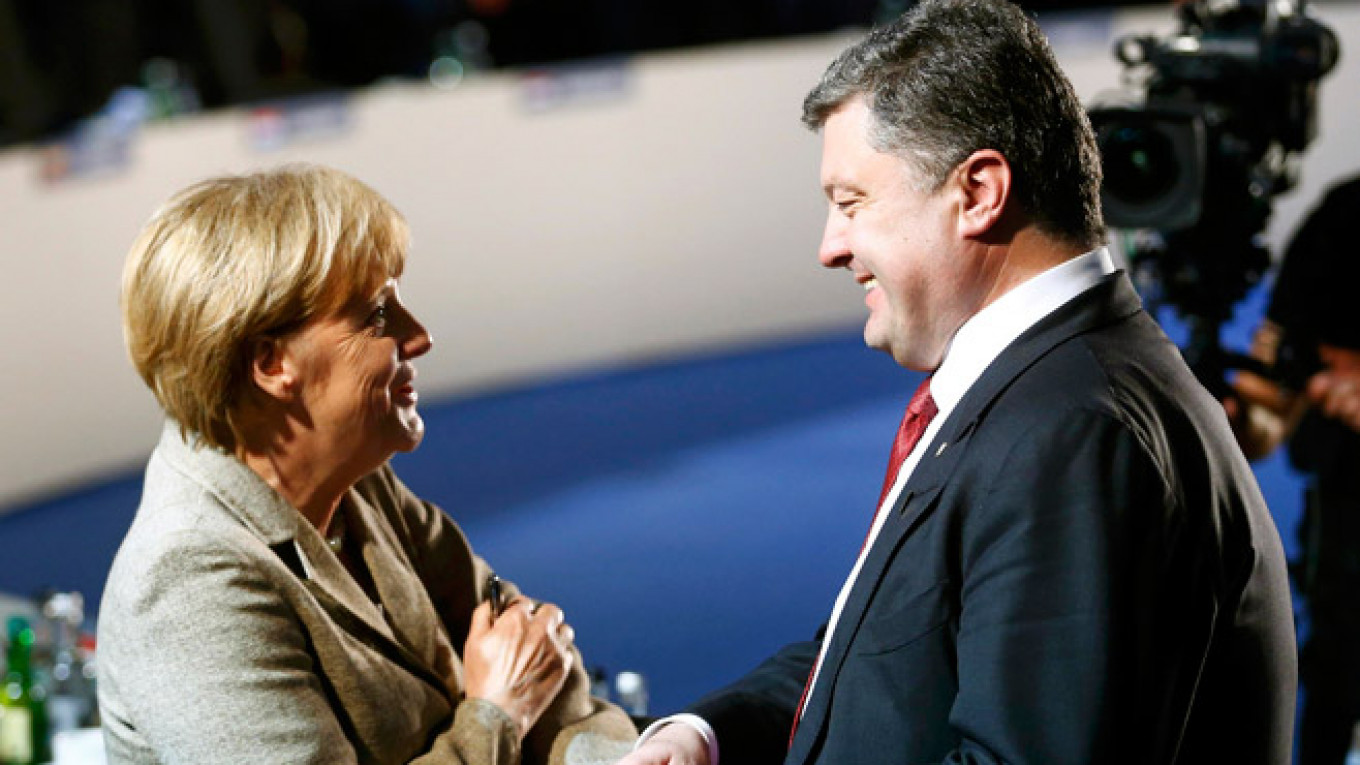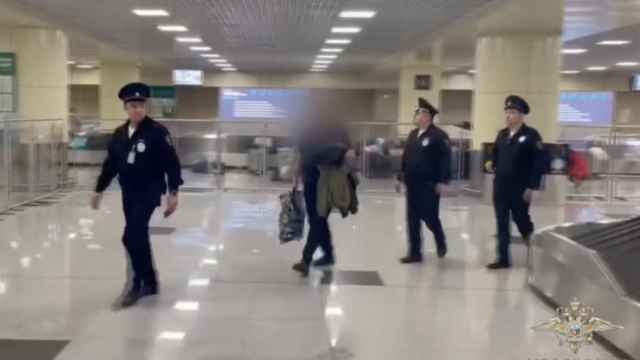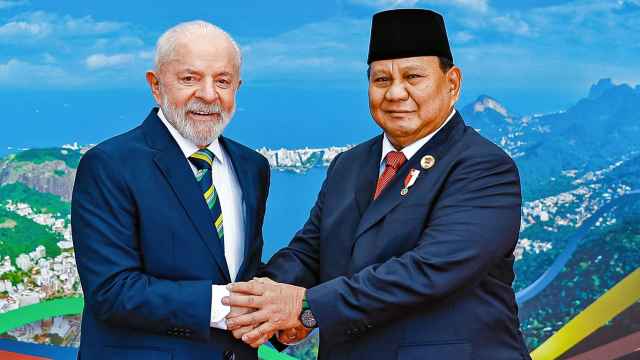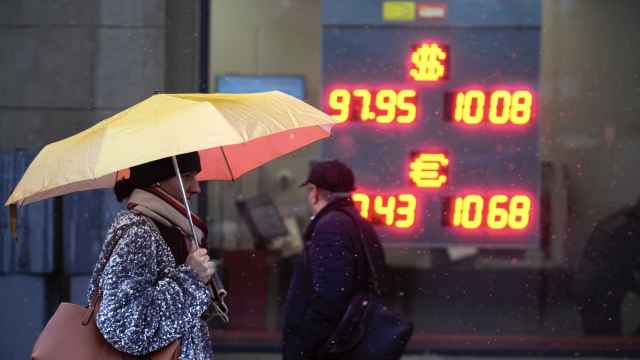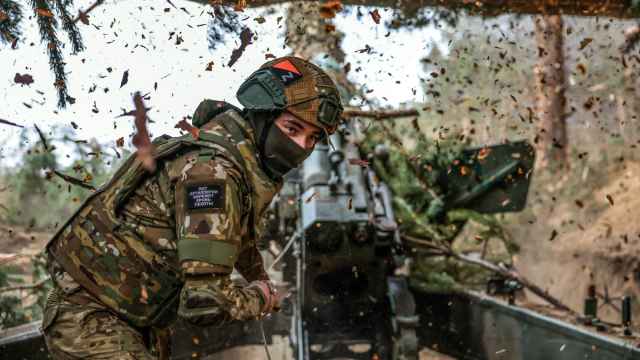The Ukraine crisis makes very clear three fundamental facts for EU foreign policy. First, the European Union is not a key actor in getting a peace process off the ground and negotiating with Russia. Rather, a coalition of individual EU member states is spearheading the whole negotiation process.
Second, the main Western players are neither the U.S. nor NATO. U.S. President Barack Obama has focused on placing sanctions on Russia and pursuing a policy of symbolic support toward U.S. allies in Europe, especially the Baltic states, Poland and Ukraine. But for Washington, the responsibility for solving this crisis lies with the EU and in particular, Germany. From a U.S. perspective, Europe has to take care of its own security.
Third, Germany has from the beginning taken a leadership role in all negotiations. This began at the start of the year when it reanimated the Weimar Triangle — a forum involving Germany, Poland and France — in order to stop the violence between the security forces of former Ukrainian President Viktor Yanukovych and protesters on Kiev's Maidan.
The D-Day celebrations in Normandy in June furnished the first opportunity for the leaders of Russia, Ukraine, France and Germany to talk, and Germany — with the support of the French president — was instrumental in bringing Ukrainian President Petro Poroshenko and Russian President Vladimir Putin together for the first time.
This discussion should have made further progress when the Ukrainian and Russian presidents met during a summit in Minsk in late August. EU representatives were also present, but the encounter failed to bring any progress.
The German government's negotiating role in Ukraine comes at a time when Germany's political elite is actively formulating a more proactive, responsible foreign policy role for itself. Recent speeches in Munich by Foreign Minister Frank-Walter Steinmeier, President Joachim Gauck, and Defense Minister Ursula von der Leyen have all expressed this shift.
Moreover, the call for Germany to take on a key role in managing the Ukraine conflict and talking to Moscow has been strong in the U.S. as well as among many European allies, and within the Ukrainian leadership. And so Berlin has become a key negotiator. At the same time, it is now all too clear that the past two decades of German policy toward Russia and Eastern Europe has failed.
Even the most idealistic decision maker has to grasp, that there can be no modernization partnership with the Putin system, that "Russia first" is impossible when the Russian leadership persists in destabilizing its post-Soviet neighbors through asymmetric tactics and wars. Russian activity in the Crimea and eastern Ukraine has created a seismic breakdown of trust on both sides.
As a result, German elites must not only define their new international role but must also create an entirely new Russia policy and a new Ostpolitik taking the new European security reality into consideration.
From the very beginning of the crisis, German Chancellor Angela Merkel supported a tougher course toward Russia with the help of sanctions. But she has remained in close telephone contact with Putin. For his part, German Foreign Minister Steinmeier has sought to create several platforms for talks and negotiations involving Ukrainian leadership, Russian leaders, and separatists in eastern Ukraine.
The strategy of mixing different stages of sanctions with openness to negotiating with Russia should show that Russian action involves consequences while at the same time holding the door open for a solution not against but with Russia. It was German leaders in particular who persuaded the Ukrainian government and the EU to put important parts of the free-trade agreement for Ukraine on hold until the end of 2015 and to accept a de facto recognition of autonomy of the separatists in eastern Ukraine.
Simultaneously it was the German government that stopped the export of military equipment to Russia and supported tougher sanctions against Russian state companies in the energy and finance sectors. Ultimately, however, it was not the formats that Germany created that brought a serious breakthrough in the negotiations with the separatists and between Russian and Ukrainian leadership.
Rather, it was Russia's increasing support for the separatists' abilities to strike back at the Ukrainian army, linked with Moscow's ability to dictate a "peace plan." Faced with the near defeat of his army, Poroshenko lacked genuine alternatives to accepting the Russian "offer" of a cease-fire agreement.
With the fragile cease-fire agreement, all of this seems to create momentum that could help stop the situation in Ukraine from escalating further and relations with Russia from worsening. But it brings very high costs not only for the Ukrainian government but also for the credibility of the West. President Poroshenko is obliged to accept a frozen conflict on Ukrainian territory and that Russia has a veto on the free-trade agreement with the EU, while the West must accept Putin's demands that Ukraine have only limited sovereignty for the time being.
All this only makes sense if the next months are used to find common ground for negotiations with Russia about the status quo in Europe — and only if the EU is willing to invest a great deal more in stabilizing the Ukrainian state. While Moscow would prefer to renegotiate a new European order, creating buffer zones between Russia and the EU, Berlin is more interested in strengthening collective security in Europe.
There is no doubt that Merkel supports strengthening NATO's ability to fulfill Article 5 with regard to the defense of the Baltic states and Poland. At the same time, for the German leadership, NATO is not the answer to the security situation in Ukraine.
Only a strengthened OSCE, as a collective security organization for Europe as a whole, is capable of achieving this.
Perhaps one positive aspect of the Ukrainian crisis is that we now have a more realistic understanding of what Russia wants. Rebuilding the EU's and particularly Germany's relations with Russia can now take place under new conditions. The German political elite has no more illusions about continuing to conduct business as usual with Russia.
The biggest challenge now is for both sides to rebuild trust. Will it be a second Yalta Conference, with containment and a new division of Europe, or will it be a new and improved OSCE, with equal security for all and the acceptance that every state in Europe has sovereignty?
The second option would reflect the reality of a globalized world and could help stop the growing isolation of Russia and its economic downturn. One hopes that Russia will see it this way. If not, Germany will be willing to accept the consequences even it goes against its deep conviction.
Stefan Meister is head of the Eastern Europe and Central Asia program at the German Council on Foreign Relations.
A Message from The Moscow Times:
Dear readers,
We are facing unprecedented challenges. Russia's Prosecutor General's Office has designated The Moscow Times as an "undesirable" organization, criminalizing our work and putting our staff at risk of prosecution. This follows our earlier unjust labeling as a "foreign agent."
These actions are direct attempts to silence independent journalism in Russia. The authorities claim our work "discredits the decisions of the Russian leadership." We see things differently: we strive to provide accurate, unbiased reporting on Russia.
We, the journalists of The Moscow Times, refuse to be silenced. But to continue our work, we need your help.
Your support, no matter how small, makes a world of difference. If you can, please support us monthly starting from just $2. It's quick to set up, and every contribution makes a significant impact.
By supporting The Moscow Times, you're defending open, independent journalism in the face of repression. Thank you for standing with us.
Remind me later.


